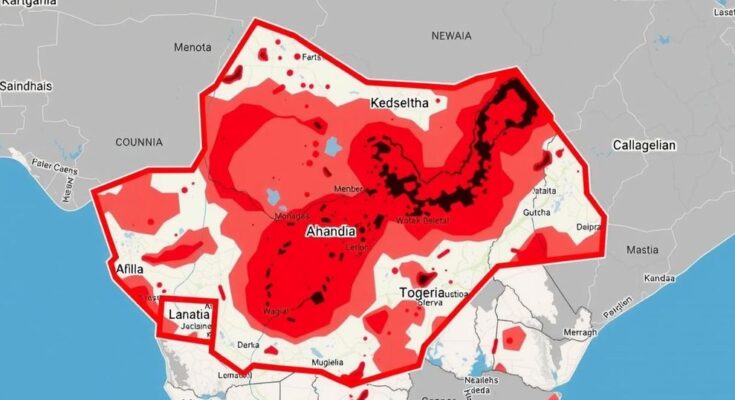The WHO has alerted about a suspected Marburg virus outbreak in Tanzania, with at least eight deaths reported. Nine suspected cases emerged in Kagera, a vital transit region. While the global risk is assessed as low, improved disease surveillance is expected, and local health authorities are on alert. Historical context reveals a previous outbreak in March 2023, which killed six individuals.
The World Health Organization (WHO) has issued a warning regarding a suspected outbreak of the Marburg virus in Tanzania’s Kagera region, with reports indicating that at least eight individuals have succumbed to the disease. Within the past week, nine suspected cases have been documented, prompting WHO officials to anticipate additional cases as the surveillance system improves. Dr. Tedros Adhanom Ghebreyesus, WHO’s Director-General, emphasized the potential for further infections due to Kagera’s status as a major transit point for individuals moving between nearby countries. While the situation is concerning, no international travel or trade restrictions have been recommended yet, as the global risk remains low at this stage.
The Marburg virus, akin to the Ebola virus, is a highly contagious disease characterized by severe symptoms, including fever, muscle pain, vomiting, and gastrointestinal distress, often culminating in significant hemorrhaging and fatalities. The first recorded outbreak in Tanzania occurred in March 2023, leading to six deaths. With no established vaccine or treatment available, public health responses rely heavily on rigorous monitoring and containment efforts to control the spread of the virus. The recent emergence of suspected cases in Kagera has raised alarms, especially given the region’s extensive cross-border interactions with neighboring countries.
The WHO’s alert regarding the suspected Marburg outbreak in Tanzania underscores the urgent need for surveillance and containment efforts in the Kagera region. As the situation evolves, the global health community is closely monitoring developments, with hopes that rapid response measures can curb additional infections. While currently deemed low risk for international spread, vigilance remains critical for the safety of the public and healthcare workers.
Original Source: www.bbc.com




